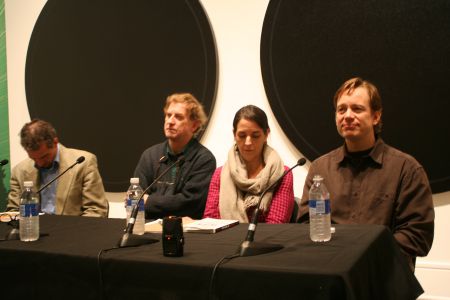K'JIPUKTUK, HALIFAX - Concerned scientists and citizens filled one of the larger Nova Scotia Art Gallery conference rooms this Thursday evening. They were attending a panel discussion by four local scientists on the state of science in Canada under the Harper government.
Scientists feel under attack by a federal government that is cutting funding for research initiatives that have no direct commercial use or do not support the government's agenda.
These same scientists are also worried about efforts to prevent government-employed scientists from freely talking to reporters when their scientific research touches upon politically contentious issues.
The event, Get Science Right, was organized by the Canadian Association of University Teachers, (CAUT) a Canada-wide organization of close to 70,000 academic and general university staff. Similar events are scheduled in many other academic centres from coast to coast.
"There has been a decline in focus on having an informed citizenry," said panel member Cathy Conrad, a professor in the deparment of geography at Saint Mary's University.
Tom Duck, a physics professor at Dalhousie University, said that there were many reasons to be concerned. He singled out cutbacks in science-based departments such as Fisheries and Oceans and Environment Canada, and the weakening of science-based legislation such as the Fisheries Act as particularly worrisome.
There was a recognition that academics share some of the responsibility for the current situation, which most agreed started well before the Harper government took office.
"I don't know that at the time many academics said three hundred students in an undergraduate class is too much. I don't know that many tenured academics have been marching with academics who are tenuously employed at universities," said one scientist in the audience.
"I don't know that there are many academics who said I am going to stand with my colleagues whose budgets are being cut, even though I am benefitting because I am doing research that is commercially oriented," the same speaker continued.
Regardless of how and when it orginated, we need to go back to the fact that we have a government that does not value science-based informed decision making, said Conrad.
"Decision are being made in this country based on poor or no information. Decisions that are not only going to harm us, but are going to harm our children and grandchildren, and perhaps irrevocably."
Follow Robert Devet @DevetRobert



